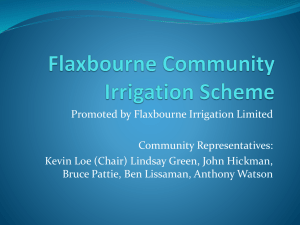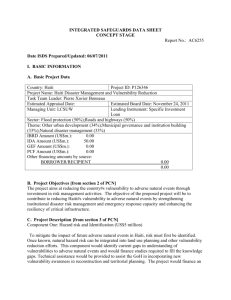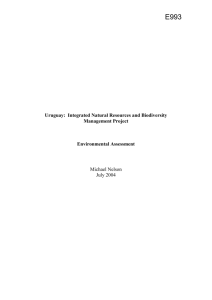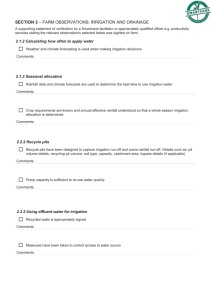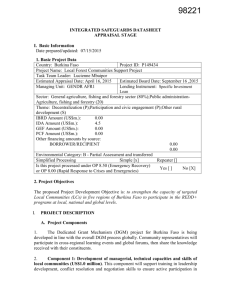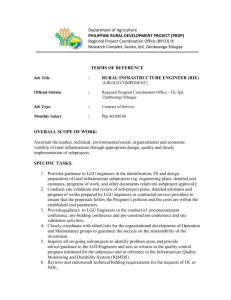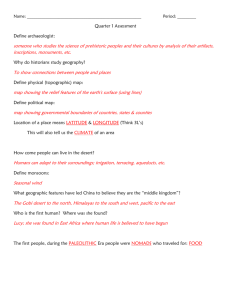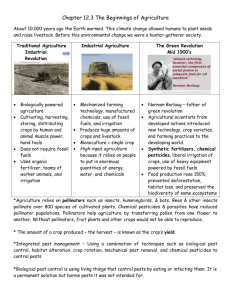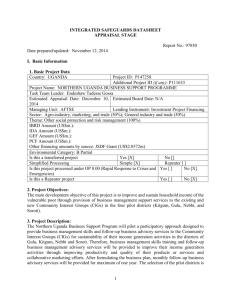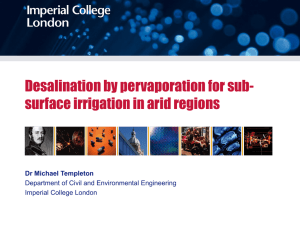file - Ministry of Agriculture Irrigation and Livestock
advertisement
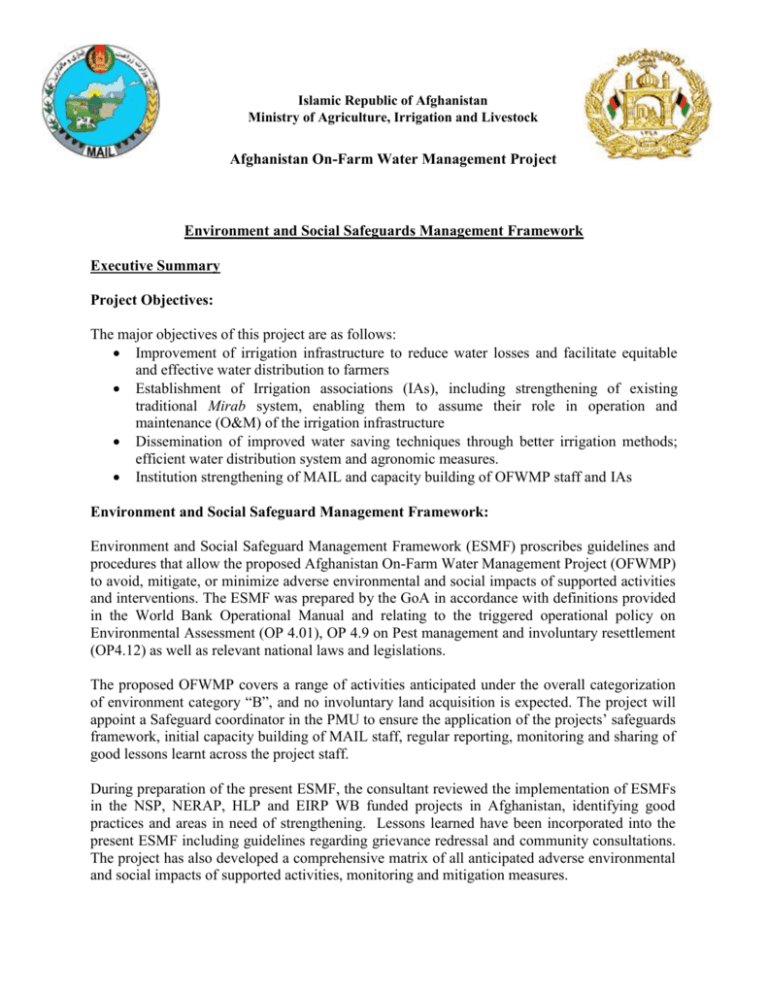
Islamic Republic of Afghanistan Ministry of Agriculture, Irrigation and Livestock Afghanistan On-Farm Water Management Project Environment and Social Safeguards Management Framework Executive Summary Project Objectives: The major objectives of this project are as follows: Improvement of irrigation infrastructure to reduce water losses and facilitate equitable and effective water distribution to farmers Establishment of Irrigation associations (IAs), including strengthening of existing traditional Mirab system, enabling them to assume their role in operation and maintenance (O&M) of the irrigation infrastructure Dissemination of improved water saving techniques through better irrigation methods; efficient water distribution system and agronomic measures. Institution strengthening of MAIL and capacity building of OFWMP staff and IAs Environment and Social Safeguard Management Framework: Environment and Social Safeguard Management Framework (ESMF) proscribes guidelines and procedures that allow the proposed Afghanistan On-Farm Water Management Project (OFWMP) to avoid, mitigate, or minimize adverse environmental and social impacts of supported activities and interventions. The ESMF was prepared by the GoA in accordance with definitions provided in the World Bank Operational Manual and relating to the triggered operational policy on Environmental Assessment (OP 4.01), OP 4.9 on Pest management and involuntary resettlement (OP4.12) as well as relevant national laws and legislations. The proposed OFWMP covers a range of activities anticipated under the overall categorization of environment category “B”, and no involuntary land acquisition is expected. The project will appoint a Safeguard coordinator in the PMU to ensure the application of the projects’ safeguards framework, initial capacity building of MAIL staff, regular reporting, monitoring and sharing of good lessons learnt across the project staff. During preparation of the present ESMF, the consultant reviewed the implementation of ESMFs in the NSP, NERAP, HLP and EIRP WB funded projects in Afghanistan, identifying good practices and areas in need of strengthening. Lessons learned have been incorporated into the present ESMF including guidelines regarding grievance redressal and community consultations. The project has also developed a comprehensive matrix of all anticipated adverse environmental and social impacts of supported activities, monitoring and mitigation measures. The ESMF is based on the following principles: (i) The proposed project will support multiple sub-projects, the detailed designs of which may not be known at appraisal. To ensure the effective application of the World Bank’s safeguard policies, the Framework provides guidance on the approach to be taken during implementation for the selection and design of sub-projects, and the planning of mitigation measures. (ii) All proposed sub-projects will be screened to ensure that the environmental and social risks can be adequately addressed through the application of standardized guidelines; (iii) The ESMF includes checklists and regulations to minimize environmental and social adverse impacts of sub projects such as: Environmental and Social Screening & Assessment Procedure; Subproject Screening Checklist; Check list for conservation tillage sub-projects; Check list for watershed management for soil and water conservation of the subprojects; Check list for integrated pest management (IPM) subprojects; Typical Impacts and Mitigation Measures for OFWMP/Irrigation Sub-Projects; Community Participation and Consultation; Environmental and Social Management Plan (ESMP); Monthly Progress Report of Sub-Projects from the IAs; Pest Management Plan (PMP) in OFWMP; Proposed OWFM/Pest management tools and techniques; (iv) Project design and sub-project selection will aim to maintain regional balance, and equity between genders, and ethnic and religious groups, considering variations in population density. Employment opportunities within the projects will be available on an equal basis to all, on the basis of professional competence, irrespective of gender, or ethnic or religious group. In all projects which require consultations with local communities or beneficiaries, consultations will be conducted to elicit the views of both the male and the female population; and Environment and Social safeguards are not only donor-driven requirements but also covered by national legislation such as Environment Law and other related laws. As with many regulations, the challenge is to apply them and monitor their implementation and ensure that they are mainstreamed in the project’s operations. Consultation and disclosure requirements will be simplified to meet the special needs of this project. Prior to approval by the World Bank Board, this Environmental and Social Safeguards Framework will be disclosed in Afghanistan in Dari and Pashto, and in the World Bank Info shop.
